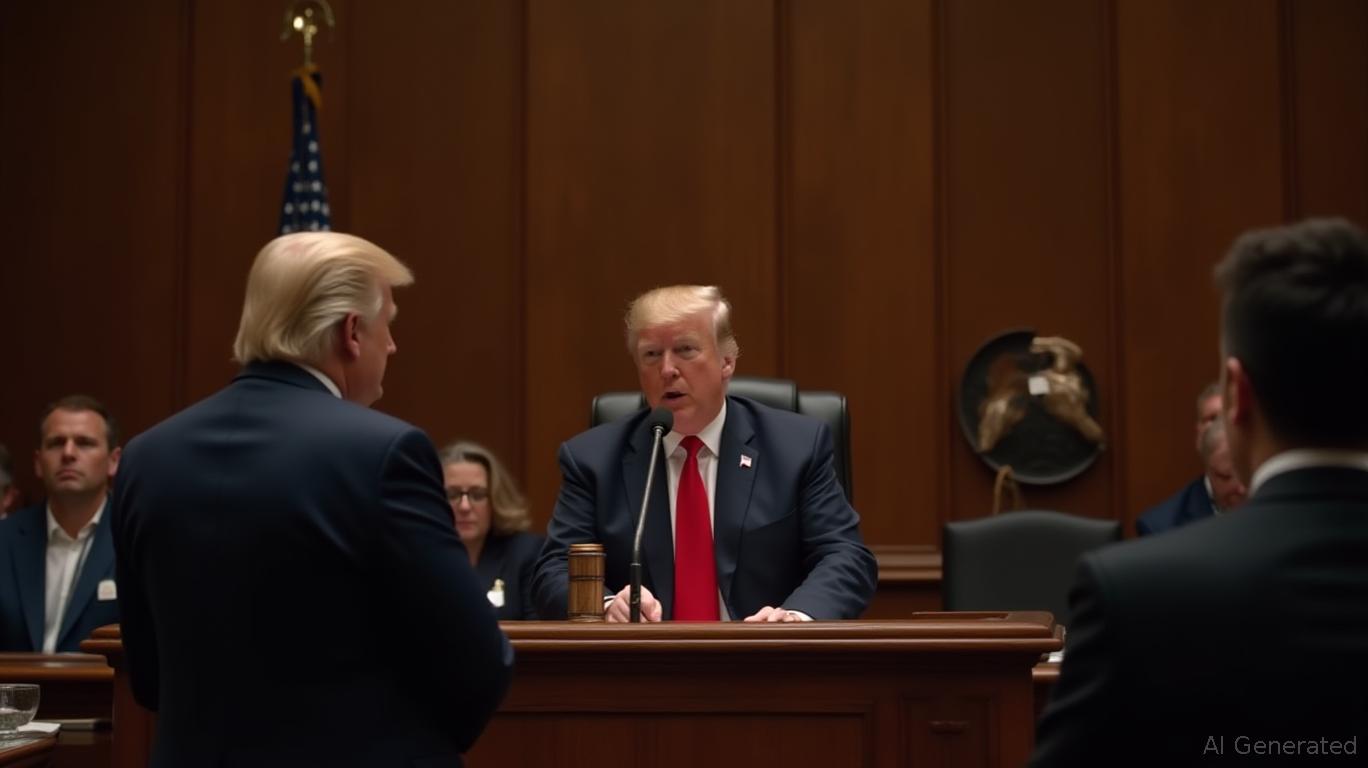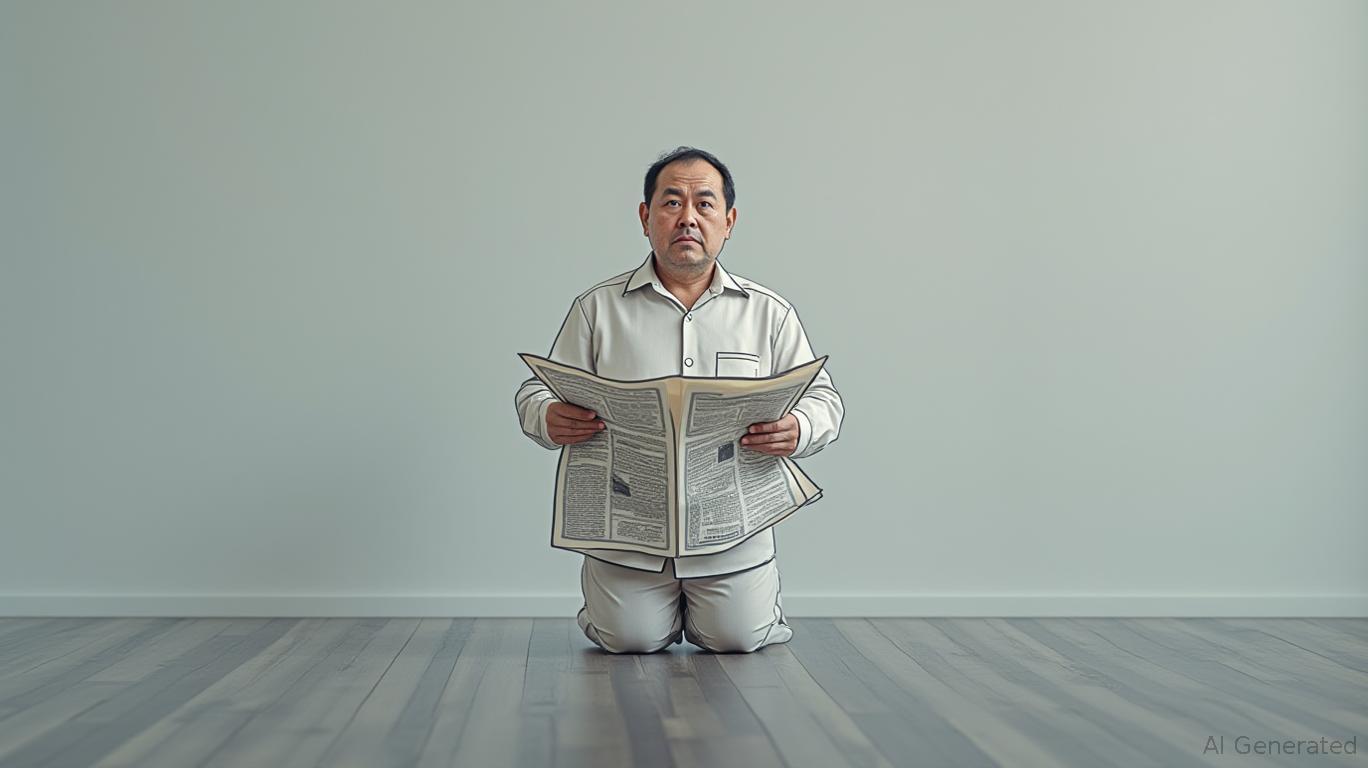U.S. Court Limits Trump's Tariff Power, Reigniting Battle Over Executive Authority
- U.S. appeals court rules Trump’s global tariffs exceed emergency powers under IEEPA, challenging their legality. - Decision upholds prior ruling rejecting IEEPA’s use for tariffs, setting mid-October deadline for potential enforcement halt. - Trump vows Supreme Court appeal, raising questions about executive authority and IEEPA’s limits amid political scrutiny. - Economists warn ruling creates uncertainty for businesses, potentially dampening trade and corporate activity globally. - Outcome could redefin
The U.S. Court of Appeals has ruled that most of Donald Trump’s global tariffs, often referred to as reciprocal tariffs, exceed his authority under emergency economic powers, marking a significant legal challenge to the policy’s legality. The court’s 7-4 decision on Friday upheld a prior ruling by the U.S. Court of International Trade, which similarly rejected Trump’s use of the International Emergency Economic Powers Act (IEEPA) to justify the imposition of tariffs on nearly all trading partners [1]. This ruling does not immediately remove the tariffs but sets a deadline for their potential enforcement halt by mid-October, pending further legal action in the U.S. Supreme Court [1].
The ruling centers around the IEEPA, a 1977 law that empowers the president to respond to national emergencies or threats from abroad. Trump repeatedly invoked this law during his presidency to impose tariffs he argued were necessary to address trade imbalances threatening U.S. national security. However, the appeals court found that the IEEPA does not grant the president the authority to impose tariffs or duties, nor does it include procedural safeguards to limit presidential power on such matters [1]. The decision underscores a clear legal distinction between presidential emergency powers and the authority to levy taxes, which the court emphasized resides with Congress.
Trump has vocally criticized the ruling, calling it a “disaster” for the country and claiming it threatens U.S. economic sovereignty. He has indicated plans to appeal to the Supreme Court, where a conservative-leaning bench could influence the final outcome. The Supreme Court’s involvement raises broader questions about executive power and the limits of the IEEPA, particularly in a political climate where similar legal challenges to presidential actions have been increasingly scrutinized [1]. For example, during the Biden administration, the court expanded the “major questions doctrine” to invalidate policies that extended existing laws into major policy areas without clear congressional authorization [1].
Economically, the ruling could have wide-reaching implications for U.S. businesses and global markets. Tariffs affect trade flows and corporate profitability by increasing costs for imported goods. The decision introduces uncertainty for companies that rely on imports, potentially deterring business activity with the U.S. until the Supreme Court rules definitively. Dr. Linda Yueh, an economist from Oxford University and the London Business School, noted that the ambiguity could “dampen down economic activity” as international partners wait for resolution [1].
The outcome of the Supreme Court case could also reshape Trump’s political standing and the legacy of his trade policy. A reversal of the appeals court decision would strengthen his position as a policy enforcer and could set a precedent for future executive actions under the IEEPA. However, an affirmation of the ruling would challenge his authority and diminish the perceived effectiveness of his trade agenda. The court’s decision is expected to influence not only current tariffs but also future trade negotiations and the enforceability of reciprocal trade agreements [1].

Disclaimer: The content of this article solely reflects the author's opinion and does not represent the platform in any capacity. This article is not intended to serve as a reference for making investment decisions.
You may also like
Best Meme Coin To Buy In 2025 For A Shiba Inu-Style Rally: MANYU, BERT, or Floki?

HBAR Slips 1.5% to $0.2278 as –$12.24M Outflows Pressure Key Range

New City Pioneers RWA Push as Traditional Assets Go Digital
- New City Development announced a HKD 50m share issuance to fund Real World Assets (RWA) projects, signaling a strategic shift toward tokenizing tangible assets. - The move aligns with growing RWA sector momentum, aiming to enhance liquidity and attract investors through blockchain-enabled asset management. - Funds will target high-quality tokenizable assets, though regulatory and technical challenges remain for compliance and infrastructure development. - As an early adopter, the firm could set benchmark

Bitcoin News Today: Investors Hold Fire as Crypto Market Waits for Clarity
- Crypto markets maintain equilibrium as BTC/ETH sentiment stays neutral amid macroeconomic uncertainty and mixed signals. - Moderate price swings and stable on-chain metrics reflect cautious trading, with no major inflows/outflows or aggressive short positions. - Central bank policies and regulatory developments in the U.S./EU remain key variables influencing investor decisions and market stability. - Analysts predict continued consolidation until clearer macroeconomic data or regulatory clarity emerges t
